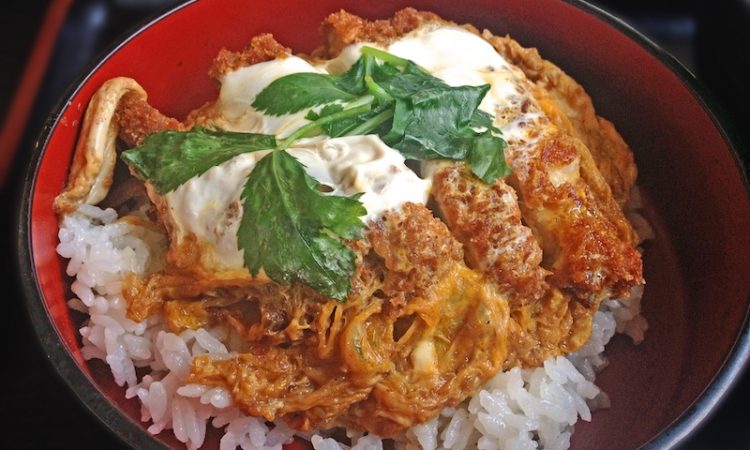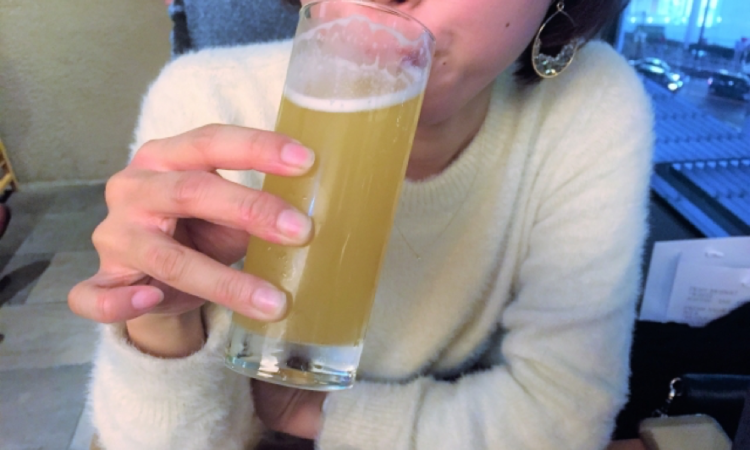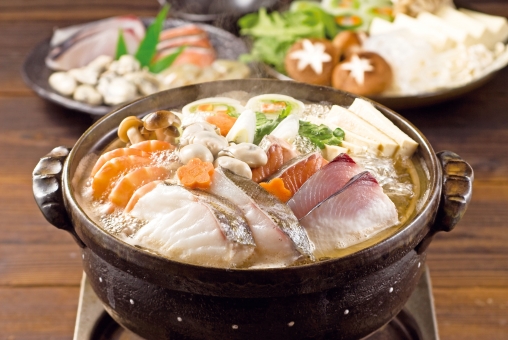The weather of Japan is starting to get colder, winter is right around the corner. In Japan, this means it’s time to warm up your freezing soul with a steaming bowl of oden.
The Most Common Types of Nabemono, Oden
Japanese oden is a traditional nabemono (Japanese one-pot dishes) stew of all kinds of Japanese ingredients from fish cakes to tofu, egg. The ingredients are boiled and served in a flavored broth and served. The ingredients and broth vary depending on what area of Japan you are in. Oden is one of Japan’s oldest fast food, which is very popular with street markets back in the Edo era (1603-1868)

While you can find oden all year round, it’s most common in the winter season. In Japan, when the weather becomes colder you will notice that steaming oden pots are popping up at the counter of every Konbini (convenience stores). It’s very cozy to take a big cup of oden and shake off the cold of the Japan winter.
Oden ingredients may look very puzzling, so here’s a list of the things you’re most common to catch when ordering oden. The ingredients range from tofu, fish paste-based, meat-based ingredients to boiled eggs, rolled omelet, daikon (Japanese white radish).
Meat-Based Ingredients

Tsukune – chicken meatballs. You will usually get them on a stick. They are absolutely delicious and tender, a great choice for your bowl of oden.

Tsumire – another kind of meatball, usually served singularly.

Gyusuji – like the tsukune, it’s usually served on a stick. These soft pieces of beef tendon add a wonderful flavor to your mix.

Rouru kyabetsu – literally ‘rolled cabbage’. This is a cabbage leaf with a beef or pork filling inside. The vegetables, meat, and broth make this an irresistible item.
Fish Paste-Based Ingredients

Chikuwa – a tube-shaped ingredient made from a mix of fish and egg whites. It can be a little spongy but don’t let that scare you off!

Hanpen – a softer fish cake. It has a milder flavor to it and it’s very fluffy. Definitely worth a try.

Satsuma-age – a fried fish cake. It often contains pieces of vegetables, seafood, ginger, and other ingredients.

Wiener maki – a small sausage wrapped in fish paste.
Tofu-Based Ingredients

Atsuage – a fried block of tofu. This piece is another must-have in your oden bowl.

Kinchaku – an ingredient with a surprise! This is a little pouch made of fried tofu with mochi inside it. Expect a chewy, almost sticky texture once you get past the tofu. Kinchaku is actually the name of a traditional Japanese string bag, hence the shape of this ingredient.

Ganmodoki – this piece of fried tofu is made with vegetables, roots, and other ingredients. It soaks up so much broth that biting into it is like squeezing a sponge.
Daikon
The Japanese white radish – daikon is no stranger in a bowl of oden.

Daikon comes in a large piece that soaks up all the broth and almost melts in your mouth!
Eggs in Oden
Eggs are also very popular in oden dishes.

Besides the classic boiled egg, you will often find tamagoyaki, a kind of rolled omelet.
Konnyaku-Based Ingredients

Konnyaku – this is a plant also known as konjac or devil’s fruit. It’s very commonly found in Japanese food. It has a firm, jelly-like consistency.

Shirataki – white, almost clear noodles made from konnyaku. They have a very faint taste but their texture is an interesting addition to your oden bowl.
What Are Your Favourite Types of Oden

You have just returned home from the konbini (convenience store) with your warm oden or you are sitting in an old restaurant with a homemade bowl of Japanese oden ready to go. How do you best enjoy your traditional dish? We will introduce the right way to enjoy oden in the next article! Stay tuned our beloved readers!
More reads:
- Yakiimo: Roasted Japanese Sweet Potato, An Autumn Guide
- Horse Sashimi VS Chicken Sashimi, Unique Sashimi in Japan
- Chestnuts? Kuri? Marron? How to Enjoy Sweet & Savoury Chestnuts in Japan!
- Sanma: Japan’s Favorite Autumn Fish
Chestnuts? Kuri? Marron? How to Enjoy Sweet & Savoury Chestnuts in Japan!





